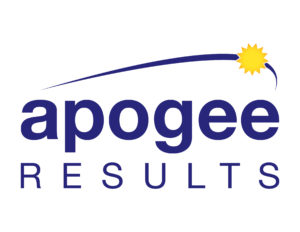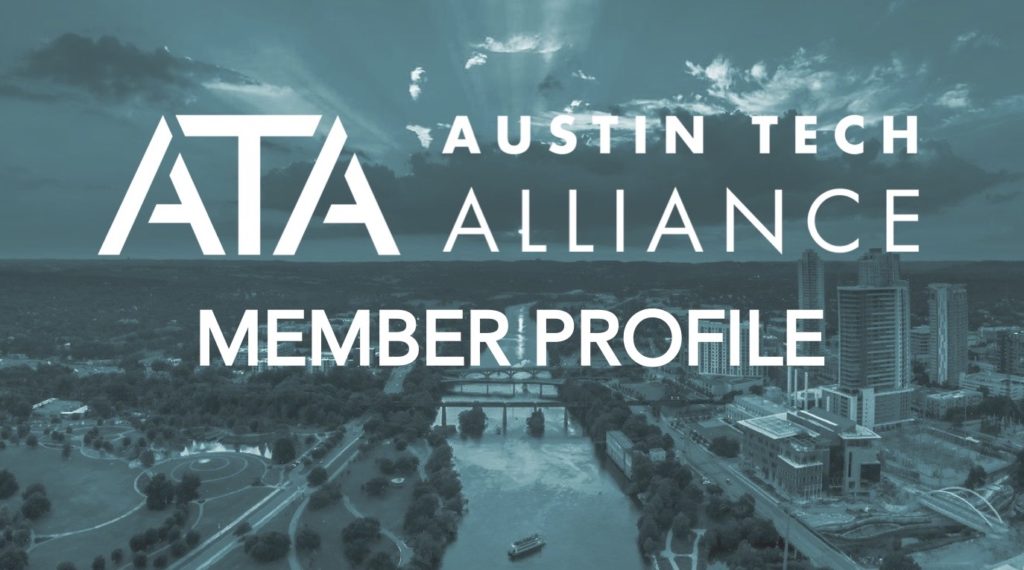 In order to highlight Austin Tech Alliance’s growing membership of organizations who support our mission to promote civic engagement in Austin’s tech sector, we regularly feature members. Up this month Bill Leake, CEO of Apogee Results.
In order to highlight Austin Tech Alliance’s growing membership of organizations who support our mission to promote civic engagement in Austin’s tech sector, we regularly feature members. Up this month Bill Leake, CEO of Apogee Results.
Introduce yourself and where you work in Austin’s tech sector.
My name is Bill Leake and I own a digital growth and digital transformation agency helping companies grow faster, and properly promote and optimize their online presence. I also am an active angel investor, help incubate new companies, and also do lots of advising work.
What do you love about Austin?
Austin has the teenage chutzpah of a city that thinks it’s an adult. It’s small enough that individuals can make a difference today, as opposed to larger and more established cities where when you move in, you end up largely conforming to what it already is. In Austin, we all have a chance to build our own future together.
What do you think are the community’s biggest challenges?
I think we have some solid challenges. One is making sure that we don’t become an isolated and insulated bubble, and separate from the rest of Austin. Challenge number one is that we’re in Austin so we need to roll up our sleeves and engage with the rest of Austin.
The second challenge is that we’re really good at launching ventures, Capital Factory style. We’re really good at founding micro-ventures. We don’t really have the critical mass yet of talent that has scaled ventures from 8 to 9 figures repeatedly or taken companies public. For us to really be more than a bubble and really last and really move into what I think we can and should be as a town, we need to not just have lifestyle ventures but have many, many more ventures that go through the 8 and 9-figures. These would have transformational-like events rather than those that just keep a few people (the founders) doing well. And that’s a real challenge because that’s not who we are currently.
Do you think that Austin has a talent development issue?
I think it’s being developed in Austin. I also think it’s hard to develop it if the talent hasn’t had time playing in a real major league game. Even if we graduate that talent in Austin as raw material, we just don’t have that enough major league games. At some point, you kind of need to rotate out and play in the big leagues. And we do have big ones here like Indeed and others, but we don’t have a whole bunch. Sometimes you have some super smart talent that figures it out but generally we need to import it or bring it back. A lot of people in Austin whine in Austin that “there’s not enough capital, there’s not enough capital” but I call BS on that; rich people like to make money, no matter where they can make money. They bet on horses, they bet on teams and they bet on talent. If a critical mass of proven scaling talent were here, we’d have the capital. It’s a totally unpopular opinion, I’m sorry to say. It totally goes in the face of people beating on their chest, walking around Rainey street or the East side, thinking and proclaiming they’re a world-class tech entrepreneur.
Why is it important for the tech community to become more civically engaged?
Unless you’re just a mercenary, if you have any empathy or any heart, unless you’re a mercenary or sociopath, you should want the community you live in to be thriving and sustainable and thriving.
This journey in life is not entirely a solo-journey. Spending a little bit of time to reach down the ladder and help the next person up or help the community, whether it’s mentoring or volunteering, is really, really important.
A lot of tech communities in other places have kind of neglected that. Things you see in Silicon Valley and Boston and other places, you see the tech community pretty detached from the rest of what’s going on. Austin’s kind of a special place, a different special place from what it was a decade ago or a couple decades ago, so we have the chance to be more than just a washed up version of Silicon Valley. And that takes the tech community actually caring and rolling up their sleeves to say “we live here and we’re deeply committed to re-investing in the community.” It’s not just padding a personal balance sheet, which is a fine goal, but there’s more to life than that.
Can you elaborate on what you mean as Austin being a special place?
Austin is largely an immigrant community; people have chosen to move here, and disproportionately knowledge-workers when it comes to the tech sector. There are some natives but there are few on the ground given the growth of the city. For someone just coming out of college, over the life of their career, it’s a pretty good bet that Texas is going to grow better than the nation, and Austin is going to grow better than both Texas and the nation. So we have a lot of goodness with us, we have current going with us, not against us. And it’s small enough that we can shape that current.
I love that we have hippies, and tech people, and volunteers and government people and people who go to the rodio wearing their boots and who have their circular dip-can indents in the back of their jeans. For the most part, compared to other cities, all these different people get along well. We have bubba, we have hispanic culture, we have African-American culture, a lot of that’s moved from East Austin cashing out and moving to Pflugerville. We have multiple cultures here and given the low crime rates, though we do have increasing rents, people do get along and have fun. There are a lot of cities and communities who don’t have that. Austin has an optimism, not a despair. When you go to places like New Orleans, it’s all about looking backwards and living in the past. It seems like a seedy, run-down museum. It’s a fun place to party, but where’s the future? And Austin is all about the future, sometimes too much, but it’s good to have optimism.
What does civic engagement mean to you?
It can take a whole host of forms. It can mean involvement in ATA, in a religious organization like a church or the Jewish Community Center, Big Brother, or the Young Men’s Business League – it’s doing something to help others in the community. It could be actively mentoring a Mass Challenge, realizing that none of these companies are at the stage where you can write them a check or they can write you a check. Civic engagement is really finding something where you can make a positive difference in other people’s lives in your community. It’s great to do world vision work or something like Doctors Without Borders, but for me, civics stuff has to be personal and it has to be in the community.
Learn more about Apogee Results

